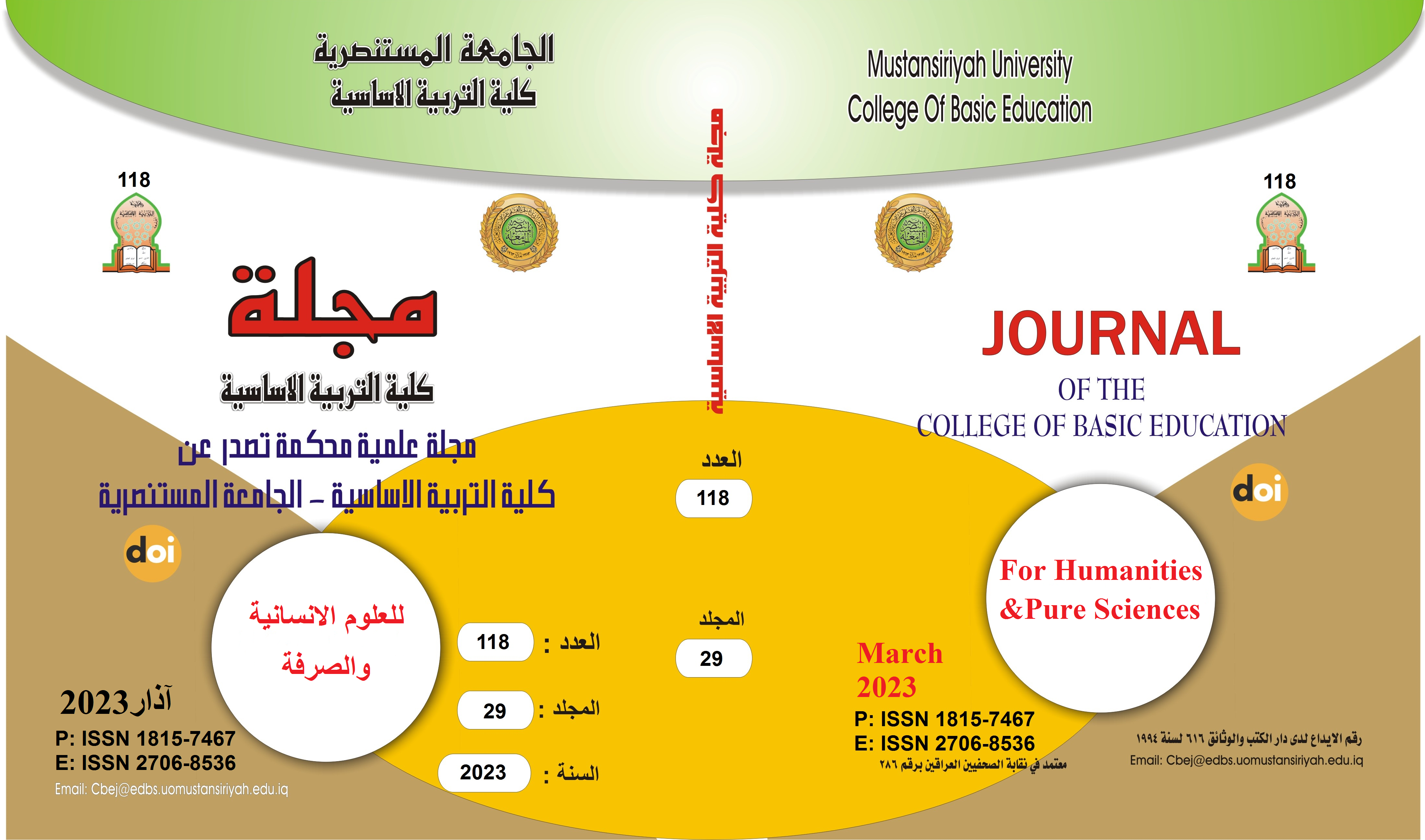Self-regulated learning strategies and their relationship to the cognitive depth of the students of the Department of Mathematics in the Colleges of Basic Education
Main Article Content
Abstract
Summary of the research:
This research comes within the context of the descriptive approach, which aims to study the correlation between self-regulated learning strategies and the cognitive depth of the students of the Department of Mathematics in the Colleges of Basic Education by answering the following questions:
1. What are the self-regulated learning strategies of the mathematics department students in the colleges of basic education?
2. What are the levels of cognitive depth among the students of the Department of Mathematics in the Colleges of Basic Education?
3. Is there a correlation between self-regulated learning strategies and the cognitive depth of the students of the Department of Mathematics in the Colleges of Basic Education?
In order to achieve the objectives of the research and answer its questions, a number of zero hypotheses were put forward.
The basic sample was chosen in a stratified random way, where the basic sample reached (330) male and female students from the fourth stage students in the Department of Mathematics in the Colleges of Basic Education, with a rate of (30%) from the total community of (1108) distributed among seven universities, which are (Al-Mustansiriya, Mosul, and Kufa Tikrit, Diyala, Maysan, and Tal Afar). One section was selected from each section of mathematics in the faculties of basic education, and in order to achieve the objectives of the research, the researcher carried out the following procedures:
1. Adopting the self-regulated learning strategies scale prepared by (Al-Tamimi, 2010) according to the Zimmerman model applied to university students and appropriate to the Iraqi environment, and its stability coefficient was (0.87). ) paragraph.
2. Preparing a test for cognitive depth with its four levels (remembering and reproduction, applying concepts and skills, strategic thinking, extended thinking) consisting of (40) objective items of multiple choice type distributed over the four levels, with (10) items for each level, and it was confirmed In terms of its validity and reliability, the stability of the test was (0.83).
The research tools (the self-regulated learning strategies scale and the cognitive depth test) were applied to the basic research sample, and using appropriate statistical methods, the results showed the following:
1. Mathematics students' possession of self-regulated learning strategies.
2. The students of the Department of Mathematics in the Colleges of Basic Education do not have the levels of cognitive depth.
3. There is a correlation between self-regulated learning strategies and cognitive depth.
In light of the results of the research, the researcher recommended several recommendations, including: holding seminars and training courses for students to demonstrate the importance of self-regulated learning strategies and encouraging them to use them, and training mathematics teachers to formulate questions in the four levels of knowledge depth, and suggested several proposals, including: conducting a study on the relationship of self-regulated learning strategies to several Variables, including creative thinking and formal thinking, as well as conducting a study that includes analyzing the content of secondary school mathematics books according to the levels of cognitive depth.
Keywords: self-regulated learning strategies, cognitive depth.
Article Details

This work is licensed under a Creative Commons Attribution-ShareAlike 4.0 International License.
